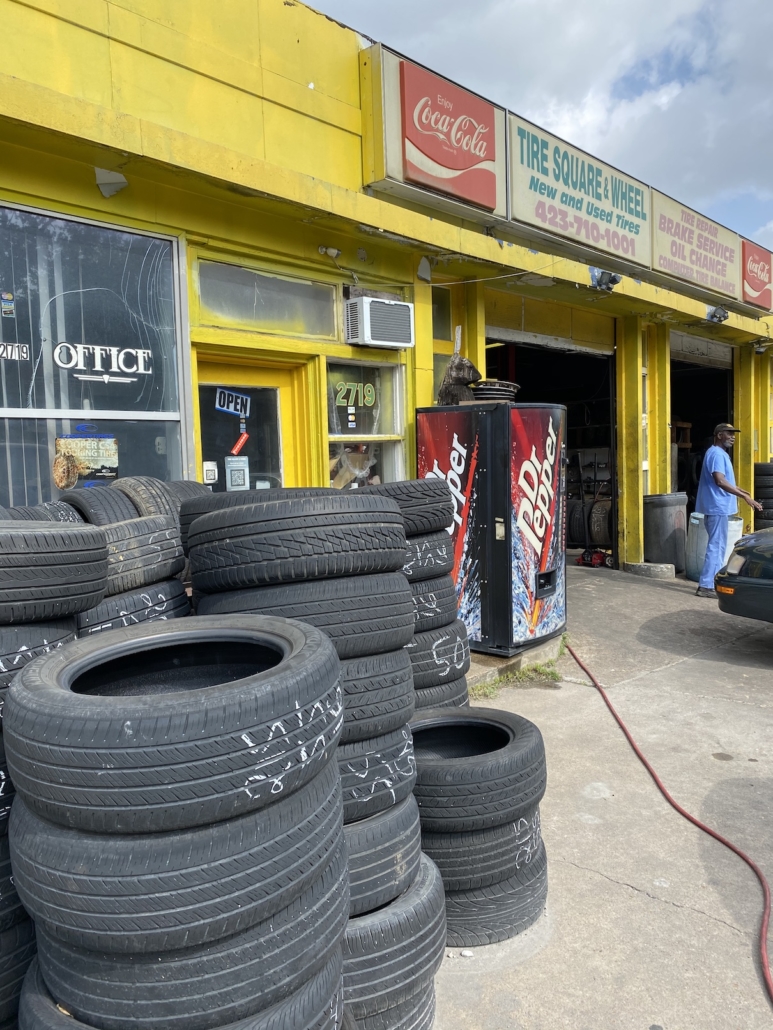Accelerate Your Drive with Morris Tire: Your Trustworthy Tire Shop Near Me
Accelerate Your Drive with Morris Tire: Your Trustworthy Tire Shop Near Me
Blog Article
The Environmental Advantages of Correct Tire Maintenance
Keeping appropriate tire treatment is typically forgotten, yet its effect on the atmosphere is profound. Appropriate tire maintenance not just prolongs the life-span of tires however likewise reduces land fill waste and adds to improved air quality.
Minimized Fuel Consumption
Improving tire upkeep techniques can lead to a considerable decrease in gas consumption for lorries. According to the United State Division of Energy, underinflated tires can reduce gas mileage by 0.2% for every 1 psi drop in stress in all 4 tires.
In addition to tire pressure, normal tire rotations and alignments also play a crucial function in fuel effectiveness. Unevenly worn tires can increase fuel consumption as the engine functions harder to keep speed and traction. By preserving appropriate positioning and revolving tires at advised periods, motorists can make sure also prolong the life and use of their tires, inevitably conserving fuel and lowering their carbon impact.
Extended Tire Lifespan
Extending the life-span of tires is a vital aspect of effective vehicle maintenance practices that can generate cost financial savings and ecological advantages in the lengthy run. By properly preserving tires, vehicle drivers can dramatically prolong their usability, minimizing the frequency at which new tires require to be manufactured and old ones thrown away. This not only preserves important resources however likewise reduces the power and exhausts associated with tire manufacturing and disposal procedures.
Regularly examining tire pressure, turning tires, and making sure correct positioning are necessary steps in extending tire life expectancy. Sufficient walk deepness is important for optimal grip and safety, but it likewise contributes in for how long tires can be used before requiring replacement. Additionally, preventing aggressive driving behaviors that increase tire wear, such as harsh braking and sharp turns, can even more improve tire sturdiness.
Inevitably, increasing the longevity of tires through positive upkeep not just profits the environment by decreasing waste and preserving sources but additionally leads to cost savings for vehicle proprietors by postponing the demand for new tire purchases.
Reduced Emissions Output
Reliable tire upkeep practices contribute to a reduction in emissions output, straightening with environmental sustainability objectives in the vehicle sector. By maintaining optimum tire pressure degrees, chauffeurs can assist mitigate these adverse ecological effects.
Moreover, properly maintained tires additionally boost traction and minimize rolling resistance, additionally enhancing fuel effectiveness. This, subsequently, lowers the amount of exhaust gases launched into the ambience. Additionally, ensuring tires are appropriately blown up and aligned can expand the life-span of the tires, minimizing the frequency of tire replacements and the linked ecological costs of tire production and disposal.

Reduced Garbage Dump Waste
Given the positive effect of appropriate tire maintenance on decreasing exhausts outcome, an additional considerable environmental benefit is the capacity for decreased garbage dump waste. By making certain that tires are effectively blown up, aligned, This Site well balanced, and rotated on a regular basis, their lifespan can be significantly prolonged.

Improved Air High Quality
Enhancing air high quality via proper tire upkeep techniques is a critical element of lasting environmental stewardship. When tires are underinflated, they develop more moving resistance, resulting in increased fuel intake and higher discharges of damaging pollutants such as carbon monoxide gas and nitrogen oxides. Correctly inflated tires not only enhance gas efficiency however also decrease the quantity of toxins released into the air.
Additionally, properly maintained tires with proper walk deepness and positioning contribute to much safer motoring problems, reducing the possibility of crashes that can lead to the launch of added toxins into the environment. By prolonging the life expectancy of tires via regular maintenance and turning, less tires are discarded prematurely, reducing the ecological impact of tire disposal and manufacturing processes.
Final Thought
To conclude, correct tire maintenance provides various environmental benefits. By decreasing gas usage, prolonging tire life-span, decreasing discharges result, lowering garbage dump waste, and enhancing air high quality, people can add to a much healthier world. These initiatives not just profit the environment but likewise assist to conserve resources and see this reduce general ecological influence. It is crucial for people to prioritize tire upkeep as a simple yet effective means to safeguard the atmosphere for future generations.
Appropriate tire maintenance not just expands the life-span of tires yet likewise decreases landfill waste and adds to improved air high quality - morris tire. By maintaining appropriate alignment and revolving tires at suggested intervals, vehicle drivers can make sure even lengthen the life and use of their tires, ultimately saving gas and decreasing their carbon footprint
By properly keeping tires, motorists can significantly prolong their use, minimizing the frequency at which new tires require to be produced and old ones disposed of.Frequently examining tire pressure, revolving tires, and making certain correct alignment are important steps in expanding tire life-span. In addition, guaranteeing tires are effectively pumped up and aligned can extend the life expectancy of the tires, reducing the regularity of tire substitutes and the linked ecological prices of tire manufacturing and disposal.
Report this page